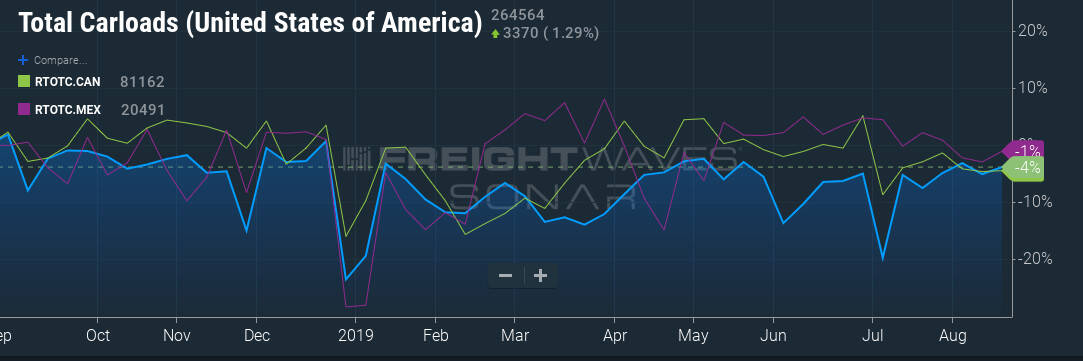The slump in year-to-date U.S. rail volumes dragged overall North American rail traffic lower last week, according to the latest data from the Association of American Railroads.
Year-to-date U.S. rail volumes fell 3.6 percent to 17.66 million carloads and intermodal units for the week ending August 24, compared with the same period in 2018. Of that total, U.S. rail operations originated 3.4 percent fewer carloads (8.6 million carloads), while intermodal units fell 3.8 percent to 9.06 million containers and trailers.
Meanwhile, overall year-to-date North American volume fell 2.5 percent to 24.08 million carloads and intermodal units. North American carloads declined 2.2 percent to 12.08 million carloads while North American intermodal units fell 2.8 percent to just under 12 million intermodal units.
Total U.S. rail volume represents about 73 percent of overall North American volumes.

The drop in U.S. rail volumes this year has been attributed partly to looser truck capacity and more competition with trucks for certain business, including intermodal.
“With truck capacity still loose and the possibility of weak contract rates into 2020, intermodal volume, pricing and margins remain at risk in the second half of 2019 and into 2020,” said transportation analyst Bascome Majors in a research note for investment firm Susquehanna Financial Group.
There are also long-term challenges to capturing intermodal market share away from trucks, according FreightWaves market expert Jim Blaze. Among them is the market dominance trucks have shipping intermodal movements in the 250-500 mile range, which is a distance that is hard for the rail industry to compete effectively, and the railroads’ lack of a speedy load-on and load-off railcar platform.
“Railroads don’t have a solution to combat either the short-haul or the drayage shortages,” Blaze said.










